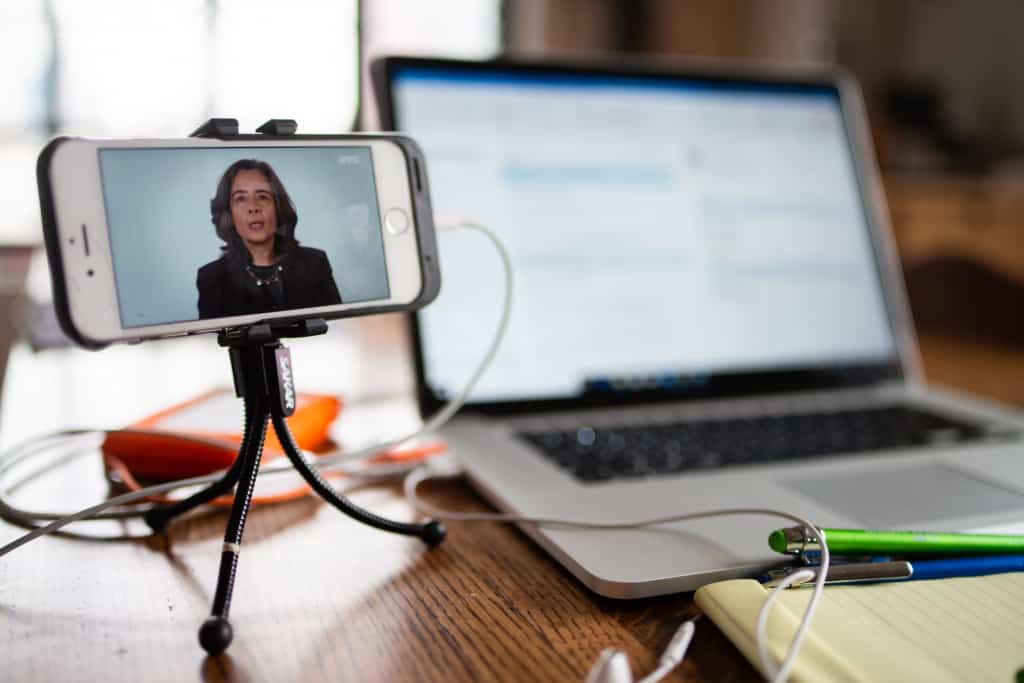Work from Home Productively, Securely & Sanely
Tools we love & tips you can use to manage your passwords & spouse so no one gets hurt

Our work-from-home pros have a few tips to help you through these trying times.
Ahhh coronavirus. Wreaking havoc not just in our personal lives, but in our work lives as well. At eXcelisys, our developers work remotely from home offices sprinkled across North America. As we’ve had years to perfect the “how-to” of working from home, we thought we’d pass along a few tips for working remotely and productively from home to ensure security and sanity as you enter this brave, new world.
“Hoard bandwidth and coffee; not toilet paper.”
~ Leif Hanson, eXcelisys full stack developer
Sec-UR-ity – You are at the center!
When you access company data and/or databases remotely, you put the data at risk. Some things to consider:
- Passwords: Utilize a password manager so you can use solid passwords without duplicating them or resorting to some sort of pattern that’s easy to hack. What’s a strong password? 12 characters, numbers, symbols and a combination of upper- and lower-case letters. The harder it is to remember, the stronger the password. Think: 90T&gSq&3bZ4#t5 and not 1600Broadway (your first apartment). Create a strong master password for your password manager and it’ll be the only one you have to manage.
We recommend 1Password or Dashlane (some plans include a built-in VPN)
- VPNs (Virtual Private Networks): To create a secure connection to another network over the Internet, use a VPN. When you use a VPN, your internet activity is encrypted (coded), making it unreadable in transit.
“A VPN is a must on any network that is not your own, as man-in-the-middle hacks are script kiddie 101. The commercials you see on TV about VPNs are actually very accurate; it’s not hype.”
~ Michael Suhrbier, eXcelisys web app developer
Let’s break that down out of geekspeak. A man-in-the-middle hacker is someone who inserts themselves between the victim and the server, allowing them to send, receive and alter all communication between the two – like passwords and confidential stuff. A “script kiddie” is a derogatory term used to describe amateur hackers who acquire scripts (written by others) to breach computer networks. What Suhrbier is saying is that pretty much anyone who wants to become a “man-in-the-middle” hacker can purchase the programs and scripts necessary to start hacking without having any technical prowess. Think about it: there’s never been a better time to hack with so many people working remotely from home! Suhrbier recommends PrivateVPN.com.
- Backups: In the office, you probably didn’t have to worry about this because IT took care of it, but working remotely from home, you’ll need a plan to ensure nothing gets lost so you can stay productive. Check with your management team to see what they recommend. The basic goal is to back up all of your business data on different media (hard drives, cloud, etc.) and in different locations (in case your homebound toddler kicks some juice onto your machine).
“It isn’t backed up if it isn’t in more than one place. Don’t count on an online backup as your only copy.”
~ Greg Furry, eXcelisys VP for technology
- Updates: Stay current with security updates and use the latest browser version.
- Wifi: Use a strong password for your wifi and don’t publicly broadcast your network to everyone in your building or neighborhood. If you’ve not changed the default password on your provider’s modem/router – NOW IS THE TIME!
- One last pro tip – “Don’t visit dubious sites,” said Furry. “I also never click on an email to see the message from my bank, credit card company, etc. I go to the site directly, login, and look there.” Following this tip will protect you from malware and phishing attacks.
Home Office 101: Comfort Tips & Working Alone Together
- Desk work. Desks are great, but consider the benefits of flexibility. “I like to be comfortable and while I do have an office with a desk I never use either,” said Suhrbier. “I find moving around the house for a change of scenery is helpful. This desk I bought is mobile, adjustable and I can use it standing, sitting or even laying in bed.”
- Ergonomics. You don’t need any eXtra back pain or neck pain, so try to create a comfortable office space. Find a chair or stool to sit on and use a table or desk for your devices (i.e. don’t lay in bed or slouch on your couch because you may feel it in the morning).
- When your new co-worker is your … spouse. eXcelisys Solution Services Consultant Mark Clark was used to working at home — alone — until last fall when his wife, Elisabeth, took a new position and started working from home, too. For a two-office home, Mark recommends each person have their own office space and respect the boundaries of that space. Likewise, eXcelisys VP Kurt Knippel suggests having a dedicated office space with doors that can close, “so you can shut yourself away from time to time.”
“We don’t barge in on each other, or interrupt. I think that is a key takeaway for couples. Respect the other person’s need for concentration and space. Knock before entering, just as you might in a traditional office setting.”
~ Mark Clark, eXcelisys Solution Services Consultant

Working Remotely & Productively – Starve Your Distractions & Feed Your Focus
- Collaboration
- Uberconference
- Zoom Video Communications
- Google docs
- Basecamp
- Trello
- Intervals
- Motivation: Keep the work flowing with a daily phone call, email or Slack messaging. For management, work to set daily goals with employees to keep them focused and on-task. Consider the value of a 5-minute check-in meeting each day to ensure everyone stays productive as they work remotely from home.
- Conversation: We’re social creatures, so isolation from co-workers stinks. At eXcelisys, we have a Slack channel called #watercooler – a place for staff to communicate and stay connected. We collaborate on several Slack channels (for our “real” work), but we all use #watercooler to tell stupid jokes, post silly memes, hurl friendly zingers at each other and rant about the WTF things our kids did last night. This outlet for levity keeps us sane in our workday isolation.
- Recreation: Don’t forget to move every few hours. Stand up. Stretch. Pace a bit. Walk around the block. Rustle up a load of laundry and toss it in. eXcelisys Solution Services Consultant Rick Middleton suggests you make a point of seeing the sun every day to help keep your sanity.
Remote Workers Have a Proclivity for Productivity
“For any organization that has never allowed remote work, this will be terrifying but the truth is that remote workers are more productive and this actually might be a valuable lesson,” said Suhrbier. To make his point, he offered this recollection of his in-office days vs. his home-office days.
My Past Life in a “Corporate Cube”
- wake up way too early & groggy
- 30-40 minutes getting ready
- 30-50 minutes driving to work
- 60 minutes at the office to “wake up”
- 90 minutes work, not all that productive
- 60 minutes lunch (finally!)
- 60 minutes getting over food coma
- 60 minutes actual work
- 60 minutes misc. meetings, etc.
- 30-60 minutes driving home, angry as hell because the I-4 is always backed up
Did you catch how much work I did in there? Not much!
Work From Home
Wake up, grab a beverage, roll my desk over and I’m productive, my mind is firing like a 12-cylinder supercar … these first four hours are WWAAAYYYYYYY more productive than a desk worker’s entire day!
More Tips for Working Remotely & Productively from Home
- Have a dedicated place for working remotely. Ideally that place should not be in a common area of the home.
- Let the family know that when you are in your dedicated place, you are at work and should not be disturbed. But stay alert in case your family needs something.
- Be aware of dogs, kids, the mail carrier, etc., when you are in meetings.
- Let your family know your working hours so they can be mindful of your need for solitude – but remember to be flexible – they may need you at times!






Leave A Comment